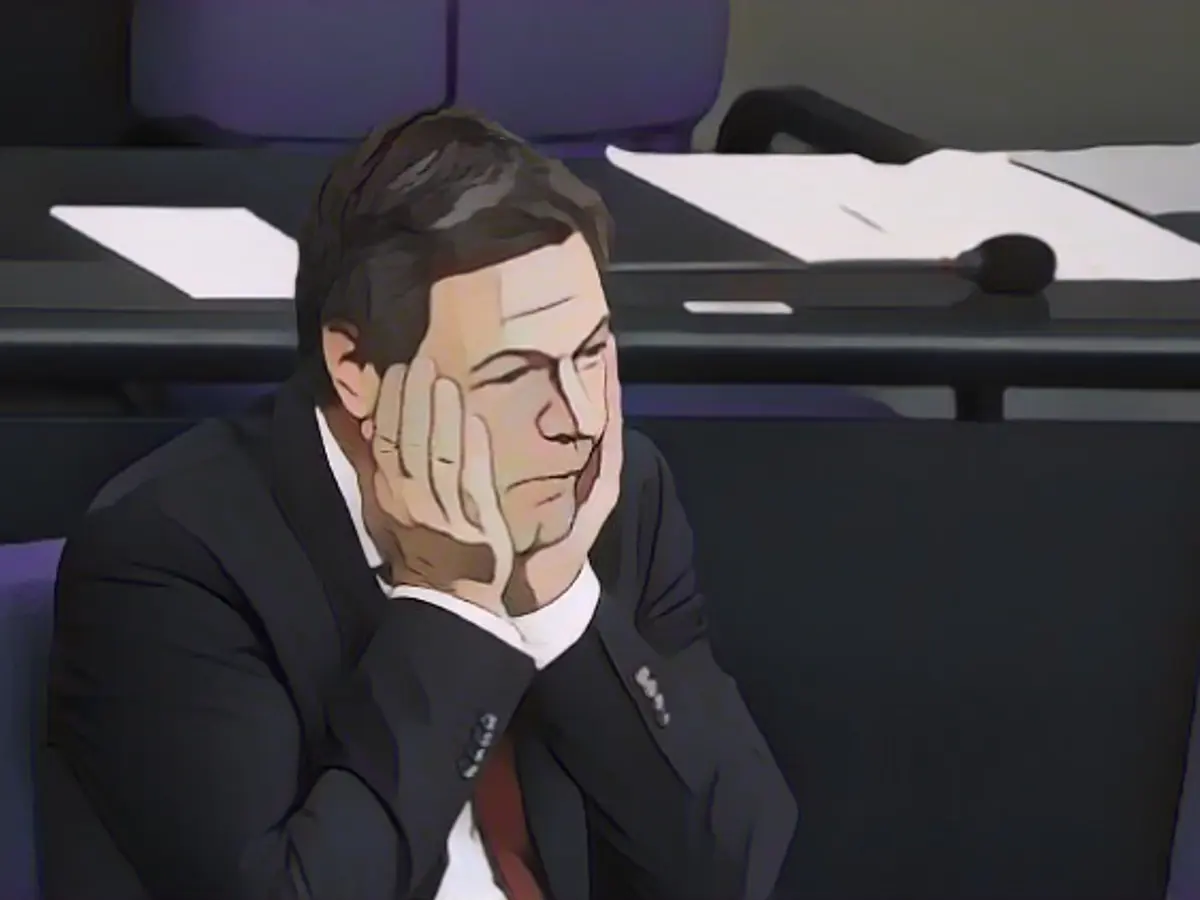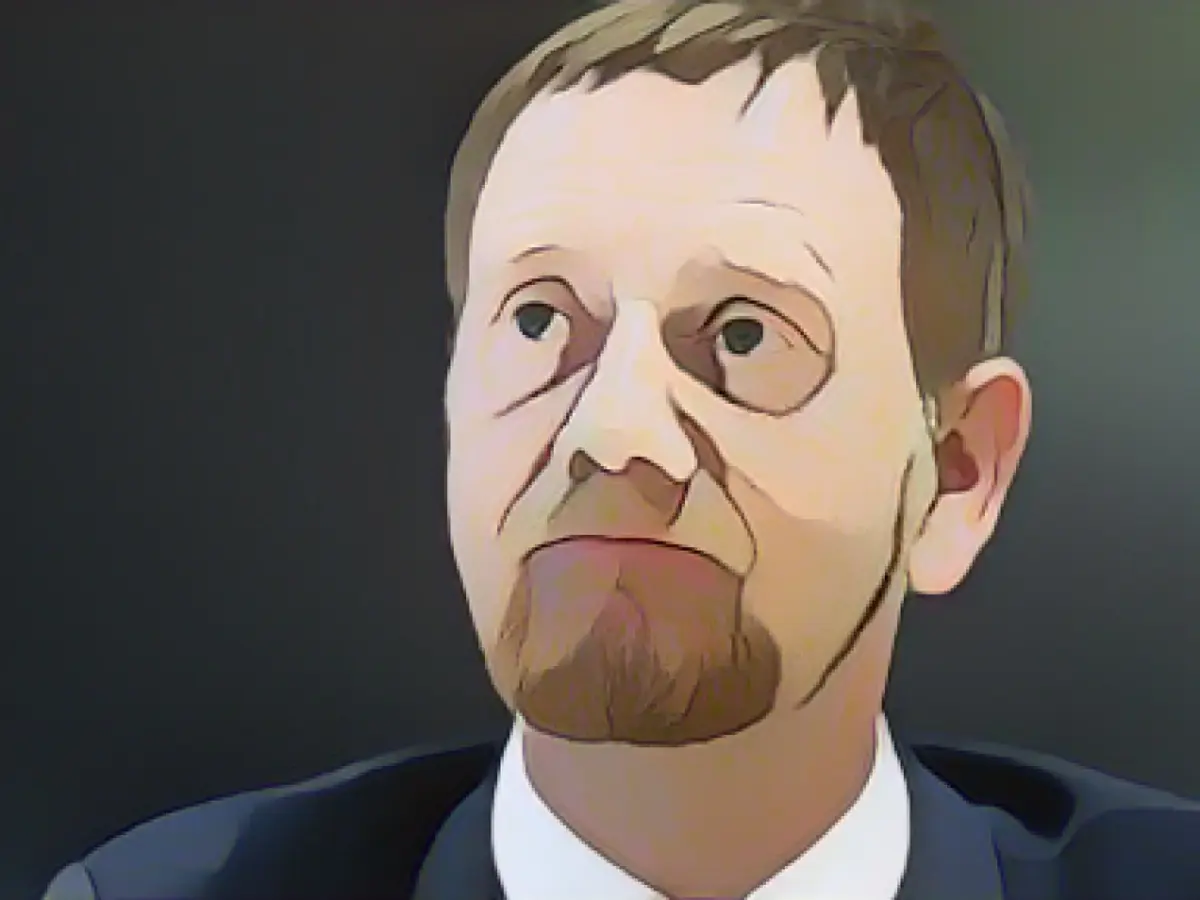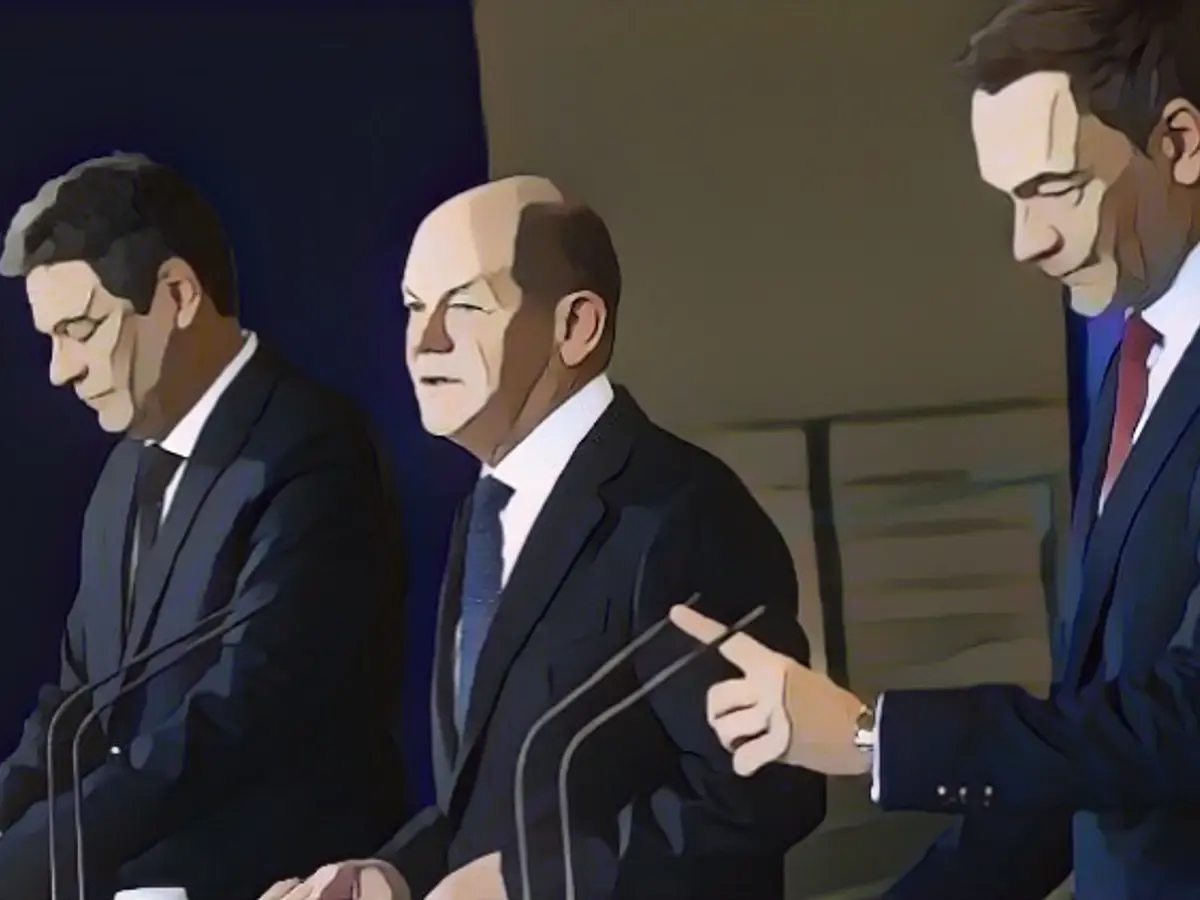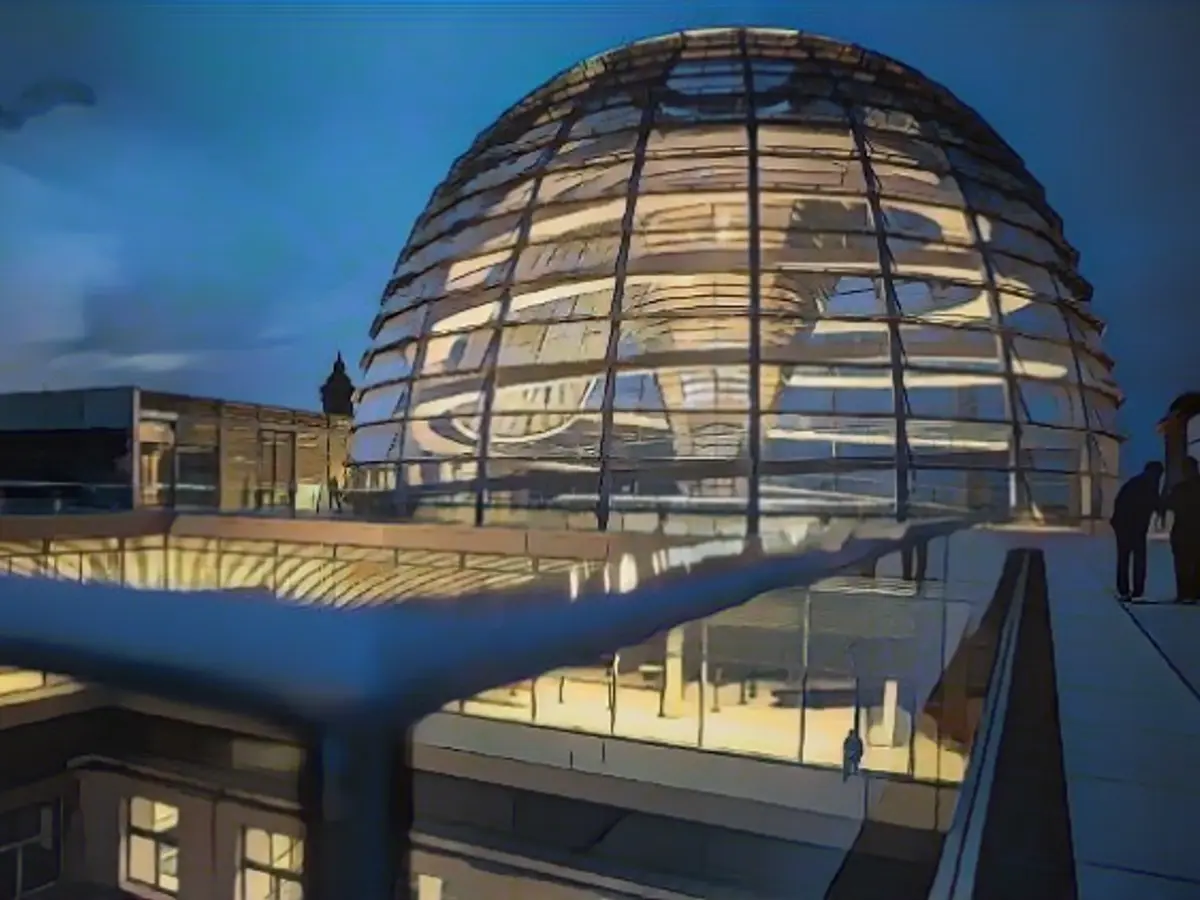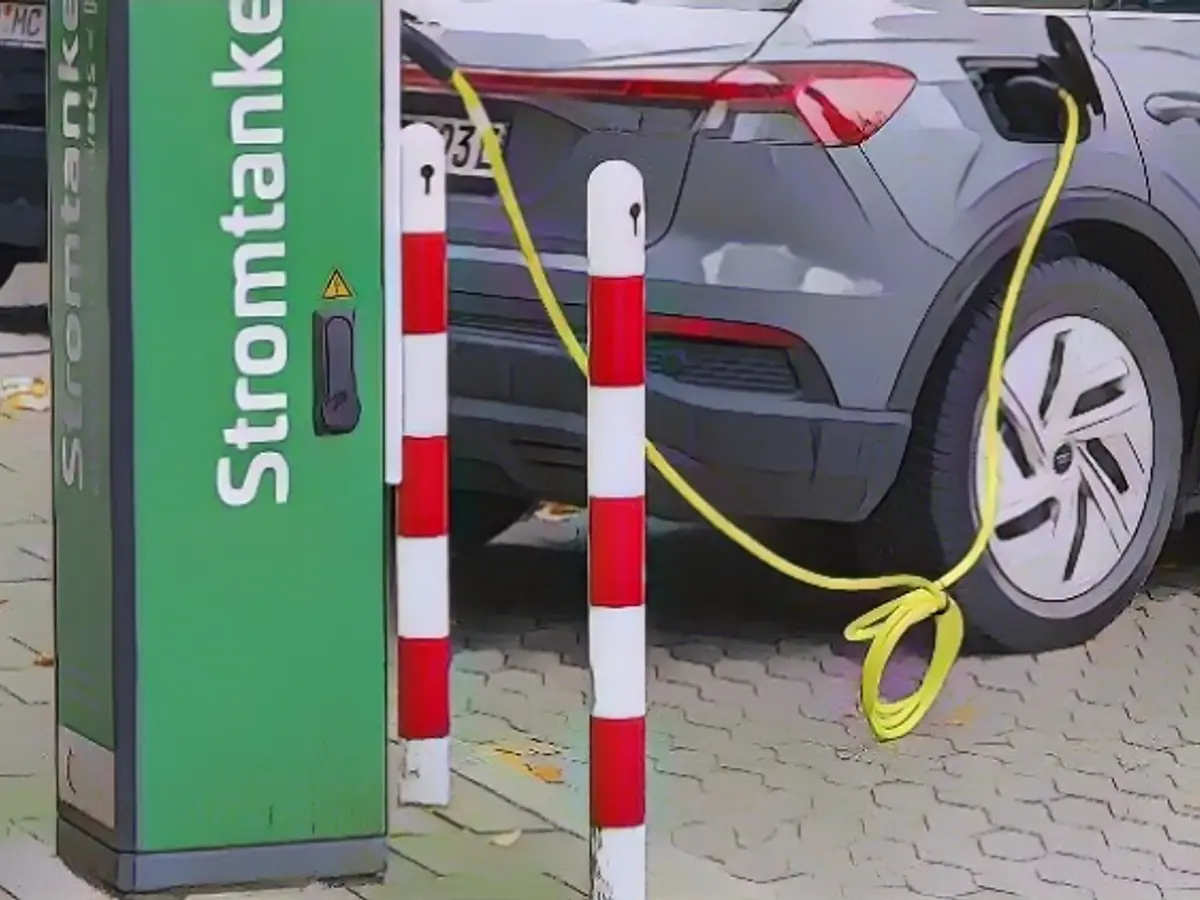In a candid admission, Federal Minister for Economic Affairs Habeck acknowledges that the recently negotiated 2024 budget agreement for the German traffic light coalition isn't the ideal solution. However, he maintains an optimistic outlook, estimating that a fresh start could be beneficial for the coalition.
In an interview with t-online, Habeck expresses his belief that the country and its citizens will have to put in a lot of effort to make this suboptimal solution work. He mentions that the country has numerous structural issues, such as education and road repairs, which could be addressed with increased investment. Habeck is concerned that the economy might experience difficulties in the following year.
The coalition leaders – Chancellor Olaf Scholz, Finance Minister Christian Lindner, and Habeck – agreed on the new cornerstones for the 2024 budget this week. The decision to adhere to the debt brake enshrined in the Basic Law, provided that the cost of supporting Ukraine does not significantly escalate, was made.
Negotiations between the traffic light trio lasted approximately three weeks. Controversial measures, such as the increase in the CO2 price and the planned elimination of tax concessions for agricultural diesel, have drawn criticism. Despite the challenging negotiations and recognition of the budget's suboptimal nature, Habeck remains hopeful about the coalition's ability to find agreement on complex issues.
Interestingly, Habeck defends the higher increase in the CO2 price for fuel and heating. He points out that there's a social balance, as 85 percent of the revenue from the CO2 price will be directed back to citizens and the economy next year. Habeck believes that this resembles "climate money via the electricity price."
Habeck maintains that the coalition has managed to create a viable solution under the given circumstances. The solution is demanding but crucial for maintaining investments, relief, and social balance. The agreement demonstrates the coalition's ability to reach agreements on difficult topics, and according to Habeck, a fresh start could be the perfect moment to start anew.
Additional Insights:
- The traffic light coalition is a political alliance made up of the Social Democratic Party (SPD), the Green Party, and the Free Democratic Party (FDP). The coalition was formed in December 2021.
- Habeck's call for a fresh start and his focus on environmental and climate issues may indicate a renewed emphasis on Germany's role in addressing these global challenges.
- The budget agreement draws attention to the delicate balance between investment, relief, and social considerations, underscoring the need for careful financial planning and management.
- The tension between green energy policies and the impact on businesses demands a different approach to promote sustainable growth without causing excessive burden on enterprises.
Germany's Vice-Chancellor, Robert Habeck, has called for a fresh start, even amid the suboptimal 2024 budget agreement. The call for a fresh start highlights the need for a viable compromise that maintains the coalition's investments, relief, and social balance. Although the budget agreement involves challenging negotiations and tough compromises, Habeck emphasizes that the coalition has shown its ability to find common ground on difficult issues.
